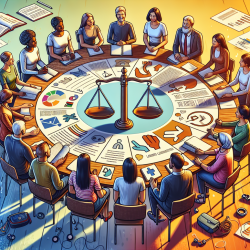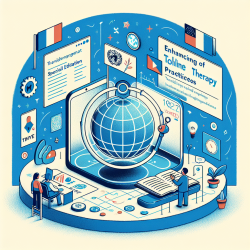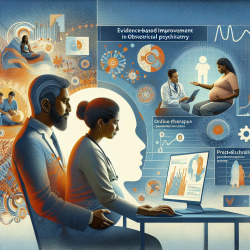The recent study, "Collective memories and social roles: the case of the Paris terrorist attacks of 13 November 2015," provides fascinating insights into how social roles shape our memories. As practitioners in online therapy, especially those working with children, we can leverage these findings to enhance our therapeutic approaches and outcomes.The study analyzed 934 interviews conducted shortly after the Paris attacks, focusing on how different social roles influenced the construction of memories. Here are some key takeaways and their potential applications in online therapy:
1. The Power of Social Roles in Memory Formation
The study found that social roles significantly influence what individuals remember and how they narrate their experiences. This is crucial for online therapists as it highlights the importance of understanding a child's social context when addressing their speech and language challenges.
2. Tailoring Therapy Based on Social Roles
Children occupy various social roles (e.g., student, sibling, friend), which shape their experiences and memories. By incorporating these roles into therapy sessions, therapists can create more personalized and effective interventions. For instance, using role-playing exercises that mimic the child's social interactions can make therapy more relatable and impactful.
3. Enhancing Memory Retention Through Contextualization
The study's findings suggest that contextualizing information within familiar social roles can enhance memory retention. In online therapy, this can be achieved by integrating therapeutic activities into the child's daily routines and social interactions. For example, incorporating vocabulary and language skills into playtime or family conversations can reinforce learning.
4. Addressing Trauma and Emotional Well-being
Understanding how traumatic events are remembered through social roles can help therapists address emotional well-being more effectively. For children who have experienced trauma, recognizing the roles they played during the event (e.g., victim, witness) can guide therapeutic approaches that acknowledge and validate their experiences.
5. Encouraging Further Research
The study opens up several avenues for future research, particularly in understanding the long-term effects of social roles on memory and emotional health. Online therapists can contribute to this growing body of knowledge by documenting and sharing their observations and outcomes.
Practical Steps for Implementing These Findings
- Assess Social Roles: Begin therapy sessions by assessing the child's various social roles and how they influence their experiences and behaviors.
- Contextualize Activities: Design therapeutic activities that align with the child's social roles and daily routines.
- Role-Playing Exercises: Use role-playing to simulate social interactions and reinforce language skills.
- Trauma-Informed Approaches: For children who have experienced trauma, tailor therapy to address the specific roles they played during the event.
- Document and Share: Keep detailed records of therapy sessions and share findings with the broader community to contribute to ongoing research.
To read the original research paper, please follow this link:
Collective memories and social roles: the case of the Paris terrorist attacks of 13 November 2015.










